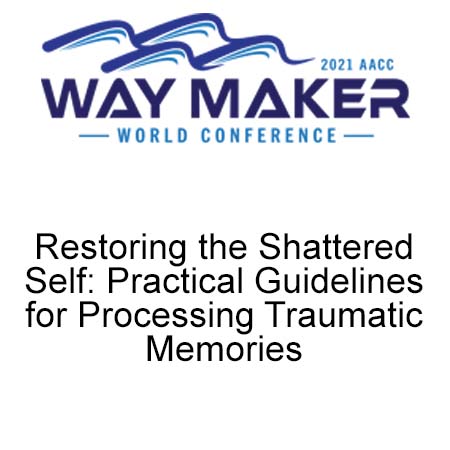Description
102: Restoring the Shattered Self: Practical Guidelines for Processing Traumatic Memories
Heather Davediuk Gingrich, Ph.D.
Denver Seminary
6399 S. Santa Fe Dr.
Littleton, CO 80120
Summary
One of the key challenges in trauma processing is adequately pacing the work to allow for maximum client functioning, minimizing the risk of suicidality, avoiding hospitalizations, and reducing the threat of premature termination of therapy. Knowledge of and ability to implement grounding techniques within the session are vital to a client’s ability to stay in touch with the here-and-now rather than getting lost in the traumatic memory. Keeping the client within the Affective Window of Tolerance is essential to successfully processing a particularly traumatic event, as is integrating behavioral, affective, somatic, and cognitive components of the traumatic memory. Another challenge is preventing vicarious traumatization in clinicians. In addition, the following will be discussed: How trauma processing fits within a three-phased treatment model (i.e., safety and symptom stabilization, trauma processing, and consolidation and resolution), assessing readiness for processing traumatic memories, containing symptoms and trauma content between sessions, integrating memories into a sense of self and identity, and the difficulties of working with spirituality in this population.
Learning Objectives
Participants will:
• Distinguish among three phases of trauma treatment for psychologists and licensed mental health professionals
• Appropriately pace trauma processing
• Implement grounding techniques within the session





